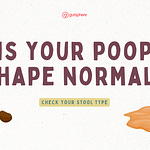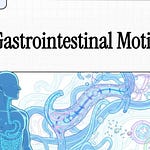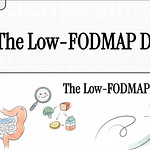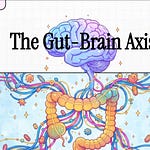Join Waitlist for Gut Health Copilot:
Join Bimal Maharjan, founder of GutSphere, in this episode of the Ultimate IBS Masterclass as he delves into the science behind the gut microbiome and its significant impact on IBS (Irritable Bowel Syndrome). Learn how the balance of microbes in your gut affects symptoms such as bloating, constipation, and diarrhea. This video covers the basics of the gut microbiome, how dysbiosis contributes to IBS, the concept of 'leaky gut,' immune system interactions, fermentation processes, and the gut-brain axis. Discover actionable steps to support a healthier microbiome and manage your IBS symptoms effectively. This educational content is not a substitute for professional medical advice, so please consult your healthcare provider before making any changes to your health plan.
00:00 Introduction to the Ultimate IBS Masterclass
01:29 Understanding the Gut Microbiome
03:13 Microbiome's Influence on IBS
03:38 Key Pathways: Microbial Composition
05:26 Key Pathways: Gut Barrier Integrity and Leaky Gut
07:05 Key Pathways: Immune System Interaction
08:51 Key Pathways: Fermentation and Gas Production
10:21 Key Pathways: The Gut-Brain Axis
11:59 Research Highlights on Microbiome and IBS
13:39 Practical Steps for a Healthy Microbiome
15:34 Conclusion and Next Steps
## Dysbiosis and IBS
Dysbiosis, or an imbalance in gut bacterial communities, is believed to be a major contributor to the pathophysiology of IBS. Studies have shown that:
- The fecal microbiota of IBS patients differs significantly from healthy subjects [1][2].
- There is reduced diversity and stability of gut microbiota in patients with IBS [1].
- Certain bacterial groups are altered in IBS, with decreased abundance of Bifidobacterium, Lactobacillus and Faecalibacterium, and increased abundance of Veillonella, Ruminococcus and proinflammatory species like Enterobacteriaceae [2].
## Mechanisms of Microbiome Influence
The gut microbiome can affect IBS through several mechanisms:
1. Activation of the gut immune system and low-grade inflammation [1][2].
2. Alteration of gut motility and sensory-motor functions [3].
3. Increased intestinal permeability ("leaky gut") [3].
4. Modulation of the gut-brain axis communication [4].
5. Production of metabolites and neurotransmitters that affect gut function [1].
## Post-Infectious IBS
A key argument supporting the role of microbiome in IBS is the increased risk of developing IBS after acute gastroenteritis, known as post-infectious IBS [1]. This suggests that infectious triggers can activate the immune system and alter the microbiome in susceptible individuals.
## Microbiome-Based Treatments
The recognition of the microbiome's role in IBS has led to several microbiome-targeted treatment approaches:
- Probiotics have shown efficacy in improving global symptoms, abdominal pain, bloating, and flatulence in IBS patients [1].
- Dietary modifications, including low FODMAP and gluten-free diets, aim to modulate the gut microbiome [2].
- Fecal microbiota transplantation is being explored as a potential therapy [2].
## Gut-Brain Axis
The gut microbiome is a key player in the gut-brain axis, which is crucial in IBS pathophysiology [4][5]. The microbiome can influence brain function through various pathways, including immune, endocrine, and neural mechanisms, potentially affecting mood, behavior, and visceral sensitivity [6].
In conclusion, while the exact mechanisms are still being elucidated, there is strong evidence supporting the critical role of the gut microbiome in IBS pathogenesis. This understanding opens up new avenues for diagnosis and treatment of IBS targeting the gut microbiome.
Citations:
[1] https://www.ncbi.nlm.nih.gov/pmc/articles/PMC6039952/
[2] https://translational-medicine.biomedcentral.com/articles/10.1186/s12967-022-03365-z
[3] https://www.frontiersin.org/journals/microbiology/articles/10.3389/fmicb.2019.01136/full
[4] https://www.ncbi.nlm.nih.gov/pmc/articles/PMC8727337/
[5] https://www.ncbi.nlm.nih.gov/pmc/articles/PMC10095554/
[6] https://pubmed.ncbi.nlm.nih.gov/25339801/
[7] https://www.medicalnewstoday.com/articles/deep-meditation-might-it-change-the-gut-microbiome-to-boost-health
[8] https://gpsych.bmj.com/content/36/1/e100893










